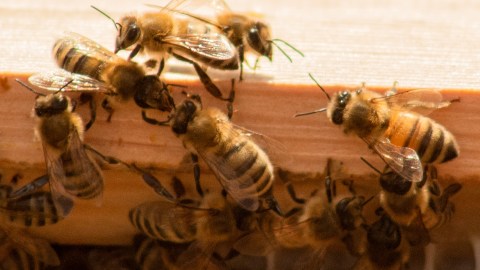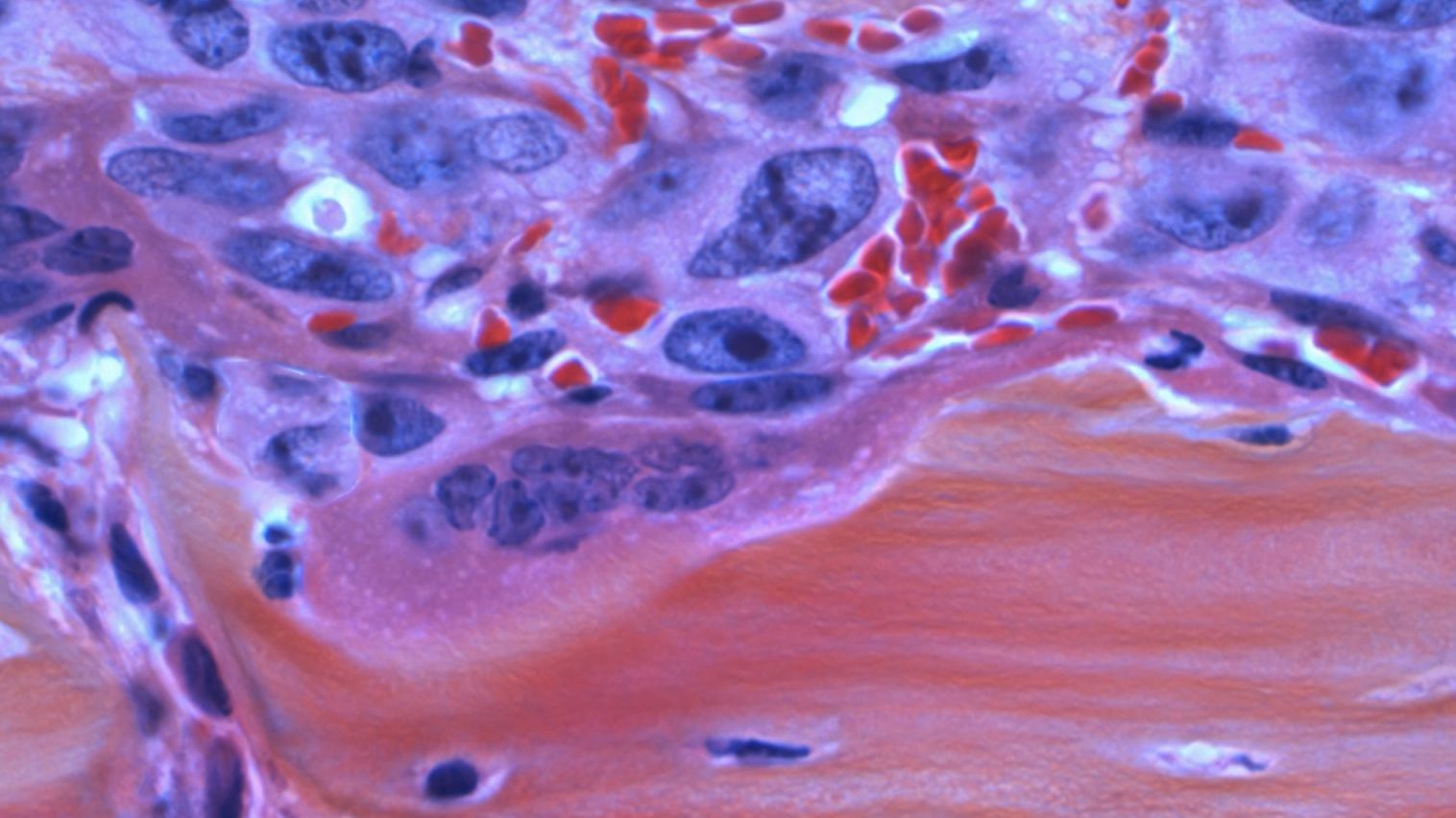Honeybee venom kills hard-to-treat breast cancer cells in new study

Credit: Meggyn Pomerleau on Unsplash
- New laboratory studies by a team of scientists found that the active component of honeybee venom induced death in two forms of malignant breast cancer cells that are notoriously difficult to treat.
- The magic healing molecule in the honeybees’ venom appears to be melittin, which rapidly killed cancer cells in under an hour.
- In the future, doctors could potentially use melittin alongside chemotherapy drugs to increase the efficacy of the treatment.
Since ancient times, the honeybee’s (Apis mellifera) honey has been hailed for its medicinal properties. Now, scientists are discovering the miraculous healing potential of its sting in curing cancer. New laboratory studies by a team of Australian researchers have found that the active component of honeybee venom, melittin, rapidly killed two forms of malignant breast cancer cells that are notoriously difficult to treat while leaving healthy cells unharmed.
Previously, honeybee venom has shown potential in treating other medical conditions such as eczema and tumors, and it has been known to have anticancer properties. How the venom works against tumors on a molecular level hasn’t been understood, but science just got a lot closer.
It seems that the magic healing ingredient in the honeybees’ venom is melittin — the zingy molecule responsible for producing the painful sting of a bee. Scientists at the Harry Perkins Institute of Medical Research in Perth, Australia and the University of Western Australia found that the melittin induced cancer cell death.
Their lab study, reported in the journal NPJ Precision Oncology, is the first to have looked into the effect the ingredient has on a range of breast cancers, the most common cancer in women worldwide. The two most aggressive and hard-to-treat types are known as triple-negative breast cancer (TNBC) and HER2-enriched breast cancer, which tend to mutate to resist existing treatments. The researchers found that melittin rapidly kills these cancer types and, critically, does so with no negative effects on normal cells.
“The venom was extremely potent,” said research leader Ciara Duffy from The Harry Perkins Institute of Medical Research in a news release. “We found that melittin can completely destroy cancer cell membranes within 60 minutes.”
The lab study also found that bumblebee venom (which does not contain melittin) did not kill those particular breast cancer cells.
The Amazing World of Beeswww.youtube.com
Melittin disarms cancer cells by puncturing holes in their outer membrane. Another stunning effect: within just 20 minutes of exposure to melittin, the chemical messages cancer cells need to grow and divide are disrupted.
“We looked at how honeybee venom and melittin affect the cancer signaling pathways, the chemical messages that are fundamental for cancer cell growth and reproduction, and we found that very quickly these signaling pathways were shut down,” said Duffy.
The molecule is able to do this by stopping the activation of receptors that signal growth factors in the cells’ membranes. The large number of these receptors in HER2-enriched cancer cells and some TNBC cells is one reason for their uncontrollable growth. Melittin seems to halt the cell’s proliferation by blocking those growth signals from getting through.
“Significantly, this study demonstrates how melittin interferes with signalling pathways within breast cancer cells to reduce cell replication,” said Western Australia’s Chief Scientist Professor Peter Klinken. “It provides another wonderful example of where compounds in nature can be used to treat human diseases.”
The team also tested to see if melittin could be used with existing chemotherapy drugs, as the pores in the membranes that it creates may allow other treatments to faster penetrate and kill cancer cells.
They tested the idea on a lab mouse with triple-negative breast cancer. They injected it with a combination of melittin and docetaxel — a drug used to treat a number of cancers including breast cancer. The mixture proved to be more effective at shrinking the tumors than either melittin or docetaxel alone.
In the future, doctors could potentially use melittin alongside chemotherapy drugs to enhance the efficacy of the treatment. This may allow them to reduce the dosage of chemotherapy drugs, and the adverse side effects that come with it.
The authors in the study point out that honeybee venom is inexpensive and easy to obtain, thus making it a fantastic option for cancer treatment in regions and countries with poorly resourced health services and care.
“Honeybee venom is available globally and offers cost effective and easily accessible treatment options in remote or less developed regions,” the authors write. “Further research will be required to assess whether the venom of some genotypes of bees has more potent or specific anticancer activities, which could then be exploited.”
Though exciting, this research is still in early, lab testing stages. The researchers will still need to perform clinical trials to assess the safety and efficacy of melittin for treating breast cancer in humans.





